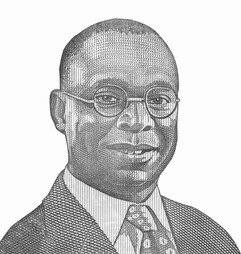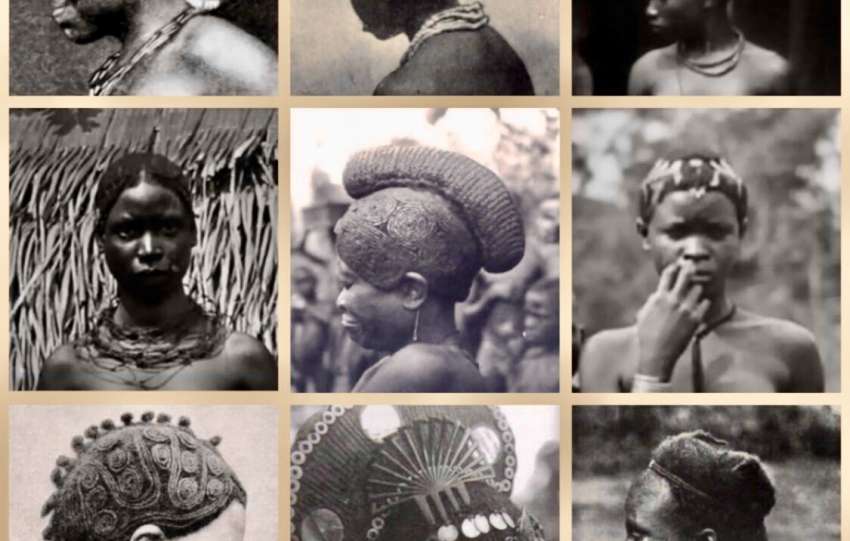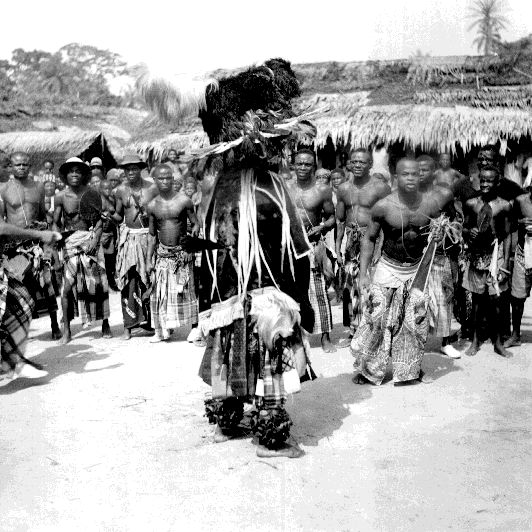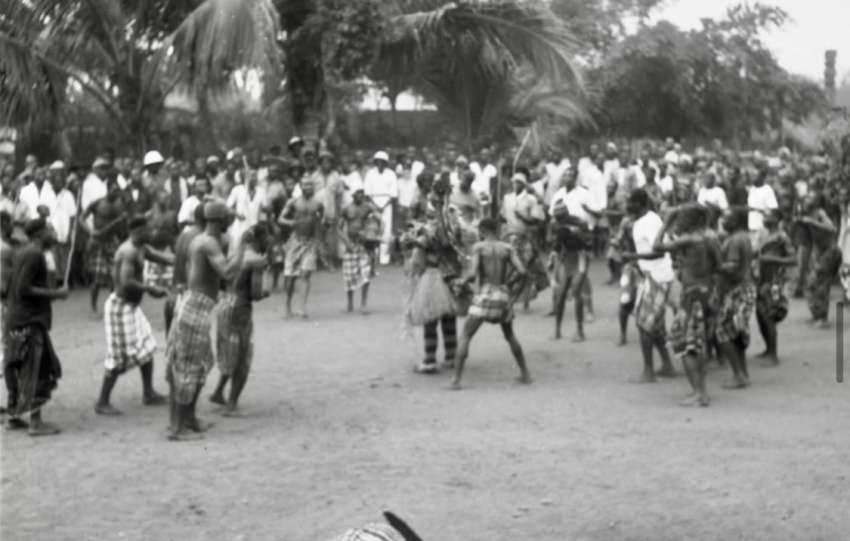The Nri people are a significant Igbo ethnic group in Igbo land that established their influence through a state system that was rooted in deep, profound religious beliefs. At the core of this system was the Eze Nri, a physical representation of a higher supernatural authority, believed to reside in Nri town. To understand the political significance of this spiritual structure, one would need to explore Nri’s cosmology and religious beliefs along with their shared beliefs with other Igbo ethnic groups, some of whom they ruled over both ritually and politically.
Interconnected Concepts in Nri Cosmology
Nri cosmology and religious beliefs are centered around five interdependent concepts:
- Chukwu – The Supreme God and Creator of all things.
- Alusi – The invisible supernatural beings and cosmic forces.
- Mmuo – The spirits of the dead typically ancestral spirits
- Uwa – The visible world that we can see and interact with.
- Ike Mmadu – The inherent power in individuals that drives action.
This article will provide an overview of each concept, their interrelations, and their political implications.
Chukwu: The Great Creator.
- Chukwu, as described by Nri priests, is the Great Creator encompassing all beings and forces, both visible and invisible. Chukwu manifests in four significant aspects:
- Anyanwu: Symbolizing the sun, Anyanwu represents omnipresence, omnipotence, and the source of knowledge. It is regarded as a male deity.
- Agbala: The oracle deity that is connected with the spirit of the land. Agbala is also known as the priestess of Ala (the goddess of the earth also known as mother earth).
- Chi: The personalized providence from Chukwu. It is considered to be a person’s guardian angel that protects them and guards them. Chi is given by Chukwu to man.
- Okike: A cosmological belief in Igbo hence Chukwu Okike or Chi Okike, which means “God the Creator” in Igbo language. Chukwu, as a manifestation of Okike, set laws in place to govern these realms. These laws are neutral, serving merely as mechanisms for existence, with good and evil arising from the manipulation of these laws by Alusi.
Blood sacrifices are not directly offered to Chukwu, however, the rituals of offering kola nuts, white chalks, and libations are carried out.
During important rituals, such as morning prayers and kola nut sharing, the Nri call upon Chukwu for prayers and supplication. An Ozo man, who has attained a certain title, must maintain a shrine to Anyanwa, and a ritual tree known as Agbala, signifying his connection to Okike. All through the month of Onwa Okike, ozo men gather in their lineage temples to offer sacrifices and seek blessings associated with Agbala.
The Nri cultivated a sophisticated mythology of beliefs with Chukwu at the center. This mythology spawned creation narratives, agricultural practices, and societal norms, while also establishing shrines dedicated to Chukwu across many Igbo towns.
Alusi: The Supernatural Forces
Alusi are the invisible creations of Chukwu, representing supernatural beings and forces that govern good and evil. They manipulate the hidden laws established by Chukwu, significantly influencing human experiences.
The Nri Categorize Alusi Into Four Types:
- Those directly established by Chukwu (e.g., Igwe).
- Those established by Eri, such as Ana and Ifejioku.
- Those established by ancestors, like Idemili and Udo.
- Ambivalent Alusi, such as Agwu, serve dual roles in medicine and divination.
Each Alusi possesses specific traits that impact human affairs, often characterized by human-like temperaments. For example, in Agukwu, the Alusi called Anwoye oversees familial matters, affecting aspects such as fertility and personal success.
Some Alusi have cults associated with them, while others exist without any formal worship. Dominant cults-those for earth, yam, and markets- play crucial roles in communal economic purposes, with rituals organized in their honor.
Alusi, as a formidable concept, can also serve as an oath during disputes. The idea is that individuals who swear by Alusi will incur divine retribution for their wrongdoing. The chief priests of Alusi acquire authority from the Eze Nri, who oversees Alusi’s control across settlements, thereby emphasizing the political significance of these religious structures.
Mmuo: The Spirits of the Dead
Nmuo are the spirits of those who are deceased, and they are classified into good and evil. Good spirits, particularly the ancestors of the Eze Nri and titled men, form a hierarchy that influences the lives and interactions of the living. According to Nri priests, Alusi is responsible for both good and evil outcomes that affect people based on their adherence to morals and societal norms.
It is paramount that the head of a lineage maintains a life of integrity according to Nri cultural practices, seeking guidance from ancestors through offerings and sacrifices. In Nri religion, the ancestor cult is a central concept and phenomenon. It reflects the structure of political leadership with the lineage acting as a mediator between the living and the dead.
An altar is erected for each significant ancestor, and the lineage leader possesses a staff that represents authority and power known as ofo. Another staff called alo, is derived from Chukwu and further symbolizes lineage power.
Cosmology and Nri Political Relevance
Nri political life is elaborately streamlined through the intricate use of the cosmic and religious. The Eze Nri enshrines and embodies both Nmuo and Alusi in his person as he controls the highest alo and ofo in Nri, placing him far above everybody else. Indeed, the belief that Nri’s ofo and alo are the highest and supreme symbols of power across the entire northern Igbo land indicates the political might of the Nri.
In fact, the modality of respect and authority in which Nri people operate within the wider Igbo cultural sphere rests on the power dynamics created by such control of ofo and alo. A relation, as might be perceived from this example, brings out the interconnectedness of religious authority with political power in facilitating the leading role of the Nri among the Igbo communities.
The Nri manipulated the multidimensional regime to retain its peculiar identity amidst the intricate nature of political administration, thus influencing the socio-political dimensions of the Igbo.
The Ideology of a Good Man in Nri
The ideology of a “good man” in the culture of Nri is individual character and achievement. A good man is one who has good character, maintains cultural taboos, and sustains peace within the community. While the most important proof of accomplishment includes wealth, children, good health, and attainment of an ozo title. Such a man is then considered a great ancestor, called ichie ukwu upon death, while others that die without the ozo title are considered a lesser ancestor called ichie Nta.
A man who dies poor, childless, or prematurely cannot become an ancestor and will not be reborn in his descendants. According to traditional belief, the Nri’s reward for a good life is to die an ancestor so that he may no longer suffer the many torments of the Alusi during life. He achieves this by obeying the instructions of higher powers: Chukwu, Alusi, and Nmuo, all symbolically expressed in the visible authority of the Eze Nri.
The Kinds of Bad Spirits
The Nri religious belief categorizes bad spirits into three kinds:
- Akologoli Spirits: are those spirits of people who lived uneventful lives, or died when they were unmarried and childless; they thus remain confused and continue creating confusion in the human world.
- Ekwensu Spirits: Those were the spirits of those people who died at an untimely age, further bad luck was created by dying under tragic circumstances such as accidents or suicide.
- Ogbanje Spirits: These are associated with children who die shortly after birth or in early childhood and return to their mothers to be reborn again unless rituals intervene. The Nri do elaborate rituals of binding the bad spirits; this is meant to help them not perform all this evil.
Traditionally, Nri men were highly called upon in their prowess of keeping off those wicked spirits. These have subdued since civilization set in.
The Nri Cosmology: Uwa and Its Ritual Framework
The seen and real world is called uwa and consists of people, animals, plants, and the rest of inanimate objects that are often at the mercy of invisible ones. Nri is seen as a mystic town with one paramount king with almost absolute powers, a projection into the people’s perception of their ecosystem.
The establishments of relationships in Nri society are regulated by the notions of nso and alu. Nso is related to taboos, while a “defiling act” is what was implied by alu. A person is said to be defiled when he has committed a defiling act, and in that state, he becomes exposed to the actions of Alusi and loses the protective shield of his ancestors.
Other forms of remedy are confession and ritual purification, through rites known as ikpu alu. There are two kinds of abominations: major and minor. Major abominations are those needing special rituals for purification, while minor ones require less in terms of resources.
Taboo breaking is not an uncommon feature in Nri; however unresolved violations portend ominous signs for the future. Major violations are such that affect the entire community since the Eze Nri at times lays alu on the whole community.
Social Stratification and Taboos in Nri
Nri has three classes of taboos governing the behavior of the individual members of the society:
- Communal Taboos: These are observed by all members of Nri society.
- Taboos for Eze Nri: These are those relating to the person of the priestly king affecting obu and state.
- Taboos for Ozo-Titled Men: These are violations exposing the persons and their obi to defilement, outlawing them from visiting the Eze Nri until cleansing rites are performed.
These typify institutional differentiation in terms of ritual accountability. The maintenance of certain taboos represents achieved statuses, which may be signified by elaborate rituals and ceremonies involving wealth transfers and distributions.
Assessing Actions and Sanctions in Nri Society
In order to gain an understanding of the social control mechanism of Nri society it is useful to look at what sorts of actions are judged and what the sanctions are for those actions. There are three important interrelated categories:
Types of Action
- Meritorious Actions: Those that are beneficial to society, ensure positive evaluation and social acclaim and bring about prosperity in terms of wealth.
- Neutral Actions: It consists of neutral action, causing no significant benefit or harm. It is usually looked upon with suspicion.
- Wicked Actions: It was regarded as injurious to society, and invited severe sanctions, public humiliation, expel from rituals, and physical punishments.
Mechanisms of Evaluation
The community has evaluative mechanisms for assessing the morality of the actions resulting in the following types of responses:
- Public Praise: There is an individual praise of people for their positive contributions to society.
- Public Shame: Whoever does injurious actions is looked upon with sanctions including ostracism, and ritual exclusions that come forward.
- Ritual Punishment: The Alusi can directly punish wrongdoing in general but most especially in the issue of societal norms and taboos.
The Pattern of Justice and Atonement
The Nri political system has achieved its justice through structured accountability, whereby evil actions against the community at large have been carried out. Restitution, then, is a communal duty as well as the societal pressure for mending offenses.
In securing communal life, the Eze Nri plays a prime role in conflict resolution and the imposition of discipline on deviance from communal will so as to maintain the integrity of Nri cosmology and the social fiber.
Conclusion
The Nri cosmology encompasses those beliefs and practices that underpin their political organization. In addition to being closely entangled with the spiritual and cultural life of the community, the authority of the Eze Nri expresses the dynamic interplay between religious observance and political rule. These are beliefs that have continuously influenced their values as a society and communal interactions within the Nri society, indeed showing the applicability and relevance of a rich cultural heritage.
References:
- Onwejeogwu, M. A. (1981). An Igbo civilization: Nri kingdom and hegemony. Ethnographica Limited.
- Womack, J. (2015). The Kingdom of Nri: An enduring legacy of peace. African Studies Quarterly, 15(1), 1-15.
- Afigbo, A. E. (1981). The dynamics of the Nri kingdom in the 19th century. Journal of African History, 22(3), 287-309.
- Nwankwo, I. O. (1998). The art of Nri: Cultural heritage and identity. Journal of West African History, 5(2), 35-50.




